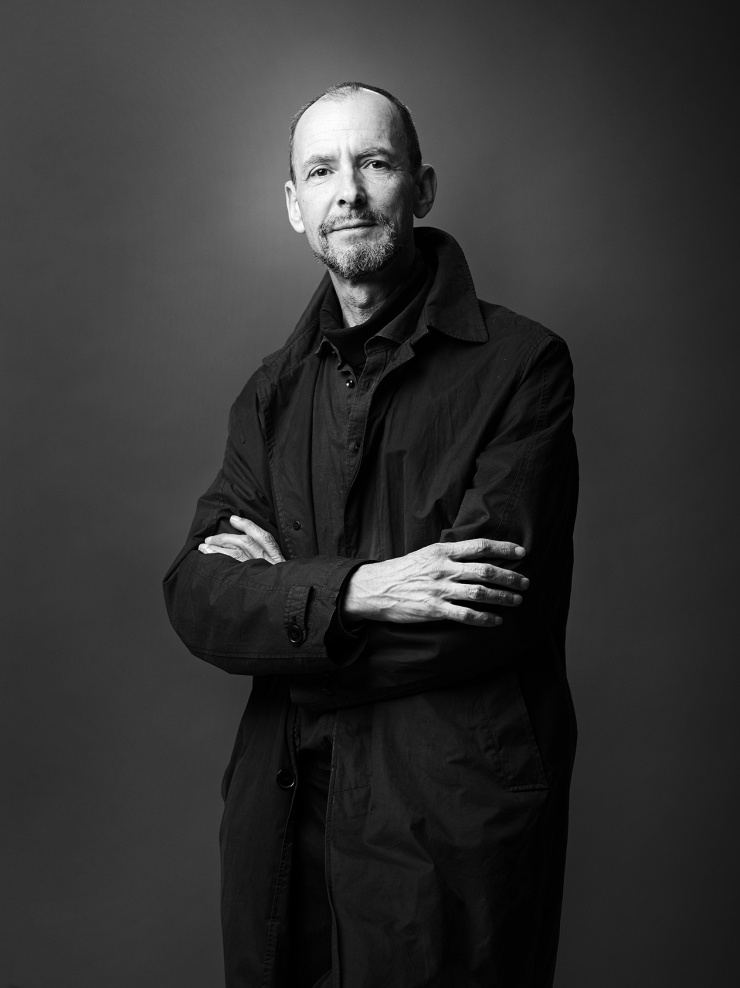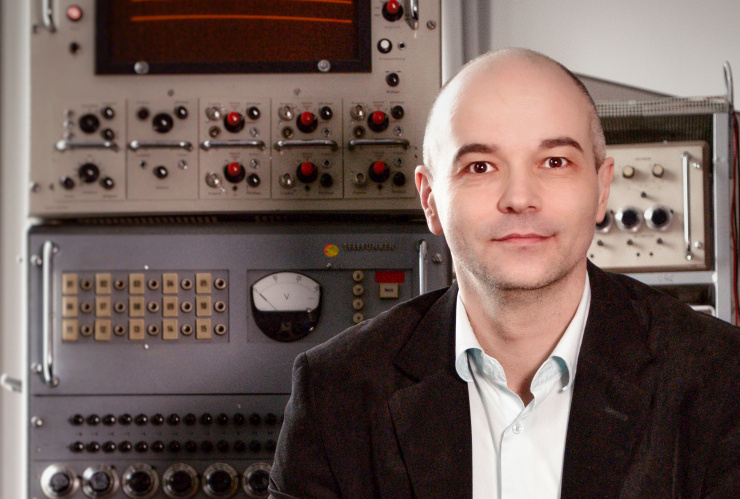Lectures, followed by a discussion and a Q&A moderated by Robert Bobnič.
DATE: Thursday, 17 June 2021 | 16:00
LOCATION: online (Zoom)
Vsebina
Wolfgang Ernst: Against the "Dead Media" Metaphor. "Objectified" and Processual Media Analysis in the Media-Archaeological Fundus, and "Radical Media Archaeology" as its Research Method [1]
Technical media are not speculative things, they actually exist. Even if their concretisations are labelled "historic", they are radically present. Their critical analysis demands their presence in operation and cannot be reduced to mere illustrations or museum objects. In order to let students and scholars experience such media in their material resistance and energetic idiosyncrasies, the Media Archaeological Fundus (MAF) of Media Science has been set up at Humboldt University Berlin in philosopher Hegel's former town house.
Before actually providing insight into the MAF, its invisible background will be illuminated in this presentation, by an introduction to the research method of "radical" media archaeology. In different artistic and "hacking" research practices like the "dead media project", media archaeology is very often non-critically reduced to a label of retro-aesthetics nostalgia for obsolete technology or simply understood in a historicist sense (like "steampunk" in literary fiction and computer game narrative design). In contrast, the "Berlin school" of Media Science actually insists – at least in principle – on the imperative of (re-)enacting technical beings: in terms of electronic hard- and computational software "close to the machine", but as well in terms of conceptual media theory (technológos).
[1] Central arguments in the following presentation of MAF's philosophy have been discussed in, but have now been extended, revised and translated, three original interviews: A) "5 Fragen an Prof. Dr. Wolfgang Ernst – Medienarchäologischer Fundus, Institut für Musik- und Medienwissenschaft der HU Berlin", Interview: Julia Kleinschmidt https://sammeln.hypotheses.org/941#more-941; B) "Archives, Materiality and the 'Agency of the Machine': An Interview with Wolfgang Ernst" (by Lori Emerson), edited version, web page "Library" (Library of Congress, USA), https://blogs.loc.gov/thesignal/2013/02/archives-materiality-and-agency-of-the-machine-an-interview-with-wolfgang-ernst; C) "An Interview with Wolfgang Ernst" (by Jussi Parikka), on the Media Archaeological Fundus at Media Studies, Humboldt University, Berlin; entry 22 August 2016, Blog (web page) What is a Media Lab? Situated Practices in Media Studies, by Darren Wershler / Jussi Parikka / Lori Emerson, http://whatisamedialab.com/2016/08/22/an-interview-with-wolfgang-ernst, forthcoming in print in: same authors (eds.), THE LAB BOOK, Minneapolis (University of Minnesota Press).
Stefan Höltgen: Signals & Noises. Scenes from a retro-computing hacker space
The signal laboratory is a working space for hands-on media science. In 2012, when the department for musicology and media science moved to the Kupfergraben in Berlin, the laboratory was rebuilt from scratch: vintage digital and analogue computers, video games, board games, tools for electronic tinkering and programming moved in. The signal laboratory became a place to research operative computer history, a seminar room for MA and BA students to learn techno-mathematical and computer-scientific methods to explore and research media technology – and a hacker space for the retro-computing community in and around Berlin.
A monthly round table was established where people could bring their vintage computer collectables to show and repair. A quarterly “game circuits” hands-on retro-gaming event was started where historical video and computer games could be analyzed on real platforms with specific research questions (e.g. “errors in video games”, “video games and speech synthesis”, …). Several exhibitions in Berlin and other German cities were planned and initiated in the signal laboratory.
During the talk, curator Stefan Höltgen will show the collection and present some selected items in operation. Specific examples will show how computer archaeology asks questions to machines that people (even their inventors) would not be able to pose. The video game “Pong” and some of its most interesting and strangest implementations will be the point of interest. With “Pong”, the curator and his colleagues will show how history, epistemology, archaeology and computer science merge into media and computer archaeology.
Wolfgang Ernst, PhD, is a full professor for media theories at the Institute for Musicology and Media Science at Humboldt University in Berlin. Academically trained as a historian and classicist (Latin Philology and Classical Archaeology) with an ongoing interest in cultural temporalities, Ernst grew into the emergent technology-oriented "German school" of media science. His academic focus has been on archival theory and museology, before attending to media materialities. His current research covers "radical" media archaeology as method, the epistemology of technológos, the theory of technical storage, the technologies of cultural transmission, micro-temporal media aesthetics and their chronopoetic potentials, and sound analytics ("sonicity") from a media-epistemological point of view. Ernst's most recent book in English is entitled Technológos in Being. Radical Media Archaeology and the Computational Machine (2021).

photo: Damjan Švarc
Stefan Höltgen (PhD, ScD) is a scholar for media science at Humboldt University in Berlin. There he researches and teaches media and computer archaeology, curates the department‘s media and computer collections, and works as a scientific advisor for the Oldenburg Computer Museum. Info: www.stefan-hoeltgen.de, contact: stefan.hoeltgen@hu-berlin.de.

photo: Meike Hildebrand
Robert Bobnič is a PhD student of media studies at the Faculty of Social Sciences at the University of Ljubljana (Slovenia) and a researcher at the University of Ljubljana, Center of Cultural and Religious Studies. His research interests include popular music, sound cultures and media theory, with a focus on the history and epistemology of media technologies.
Cover image: Dorijan Šiško
Production: Ljudmila, Art and Science Laboratory, and Projekt Atol Institute.
With support from the Ministry of Culture, Municipality of Ljubljana – Department for Culture.
